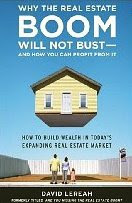
Apparently, the pundit class is not interested in looking more in depth into the issue, which has been throughly analyzed by political scientists and pollsters. One problem with the theory "You can win a Presidential Election only convincing the independents" is the fact that Karl Rove (above in a mock-photo, courtesy of About.com) won many an election doing precisely the opposite, that is polarizing the contest to the extreme. Jonathan Rauch of the National Journal, for example, points out that, "Bush-era Republicanism was all about suppressing the center and mobilizing the extremes, on the (correct) assumption that conservatives outnumber liberals. It worked, for a while, because of 9/11 and because the Democrats unwittingly cooperated. Forced to choose between the Republican Right and the Democratic Left, independents leaned Republican or just stayed home."
Rauch is correct in saying that "It worked, for a while," but this strategy is not a consequence of 9/11: it was advocated by Barry Goldwater as early as 1960, and put in action by Ronald Reagan in 1980. Reagan ran on the same platform of Goldwater in 1964,
 and won because a combination of different factors: the split in the Democratic traditional base after 1968, the hostages in Iran, the rallying to the conservative cause of a small number of intellectuals previously Democrats, and last but not least his personal appeal: it is well known that Americans liked the guy, much less his policies.
and won because a combination of different factors: the split in the Democratic traditional base after 1968, the hostages in Iran, the rallying to the conservative cause of a small number of intellectuals previously Democrats, and last but not least his personal appeal: it is well known that Americans liked the guy, much less his policies.In the long run, however, the traditional support for the Democrats by workers and low-income families remained strong, as Larry Bartels of Princeton demonstrated.
 Contrary to the opinion of Thomas Frank in his much-hyped What's the Matter with Kansas?, Bartels maintains that less-fortunate Americans do vote Democratic, the problem is that they often don't vote in numbers large enough to win (here). It is well known that 90% of millionaires do vote, while individuals with an income under $30,000 often skip the ballot box (maybe, voting on Sunday, or making Election day a holiday would improve the turnout of those who must take 2 or 3 jobs just to stay afloat).
Contrary to the opinion of Thomas Frank in his much-hyped What's the Matter with Kansas?, Bartels maintains that less-fortunate Americans do vote Democratic, the problem is that they often don't vote in numbers large enough to win (here). It is well known that 90% of millionaires do vote, while individuals with an income under $30,000 often skip the ballot box (maybe, voting on Sunday, or making Election day a holiday would improve the turnout of those who must take 2 or 3 jobs just to stay afloat).Therefore, a strategy that doesn't antagonize independent voters but counts primarily on the democratic base is perfectly reasonable. The trouble is that Democratic candidates really don't have an economic platform appealing to workers and low-income families: anybody is aware of Clinton's, or Obama's, proposals to save from catastrophy the millions of American families that lost, or are about to lose, their home in the subprime mess? Are they talking about reregulating the financial sector in any meaningful way? Obama is an inspiring orator, but platitudes about "change" will not rally displaced workers behind him in Ohio.

Politically, this year the situation in the field is this: a Democratic candidate not too weakened by a long battle in the primaries can easily win in November. It will need only to keep the blue States where John Kerry prevailed in 2004, and win in states like Iowa, Colorado and New Mexico (white or pink on the map): that would make 273 votes in the Electoral College. In Iowa and New Mexico a few thousand votes more (or, a few thousand votes LESS in the Republican column) will suffice. Colorado has been leaning Democratic in recent years, electing several smart politicians like governor Bill Ritter and senator Ken Salazar. For good measure, one can bet that Nevada and Ohio are winnable in 2008, creating a large majority in the Electoral College for a Democratic President who will have reinforced Democratic leaders in Congress (the party should pick some seats in the House and in the Senate as well).












